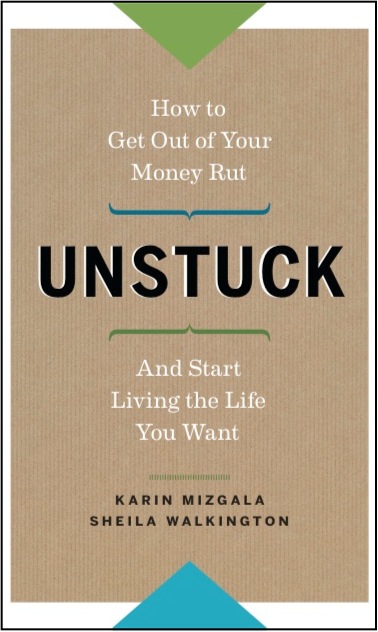A REAL NEW YEA R’S GIFT
R’S GIFT
At this time of year, no matter how much we try not to….it’s hard not to get caught up in holiday madness.
December is a time where merchants and retailers are vying for your nickel. January is a time where you get that sinking feeling about where all your nickels went!
And that’s the kind of feeling that Karin Mizgala and Sheila Walkington want to help you address. They want to help you get a grip on managing those precious funds to help you start the New Year off in the black, not the red.
The founders of Money Coaches Canada and the Women’s Financial Learning Centre are proud to offer UNSTUCK – How to Get out of Your Money Rut and Start Living the Life you Want, a book written by Canadians, for Canadians that will show you how to live a sane financial life.
There is no better time than now to order a copy of this new book. It will arrive just in time for the New Year and help you begin the year with a fresh outlook on your financial life and stick to some of those resolutions!
Start the New Year off right with this proven step-by-step money management guide that will show you how to stop living paycheque to paycheque and give you the tools and insight to the emotional and psychological challenges of today’s money culture.
2013 can be the year that you, your family, friends, business colleagues, employees, students, entrepreneurs, and everyone you know can stop the financial insanity and make the year the most profitable one yet – both in your life and in your bank account!
Put your hard earned money to good use by ordering a copy of UNSTUCK – How to Get out of Your Money Rut and Start Living the Life you Want today!
Stop the insanity and check out UNSTUCK today on Amazon.com http://amzn.to/XLNhlf
What makes this book different? Here’s what:
“Kudos to Money Coaches Canada! This book reveals your practical yet caring expertise. You showed me that financial calm is possible for me and for so many other Canadians who have fallen between the financial planning cracks. Unstuck will change lives. It will change the lives of our kids.” Patti-Jo Wiese, Vancouver, B.C.

 Now is a good time to assess your financial health and knowledge. These days there’s a chill in the air and it’s not just the wintry weather!
Now is a good time to assess your financial health and knowledge. These days there’s a chill in the air and it’s not just the wintry weather!